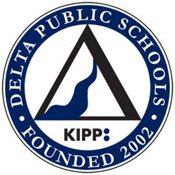Charter schools offer benefits, but the state must be cautious in using them. That mixed message emerged during a joint meeting of the Senate and House education committees yesterday morning where officials, community leaders and education advocates discussed the pros and pitfalls of charter schools.
Scott Shirey, executive director of KIPP Delta Public Schools, lauded the program's successes--100 percent college acceptance for graduates, low-scoring students who ended up at top institutions and million-dollar building projects pumping money into the area's economy.
State Superintendent of Education Tom Burnham said charter schools like the KIPP Delta program can succeed, but urged legislators to carefully plan how to implement them.
"If charter schools are done--and done correctly--they can provide tremendous opportunities for our children and a better quality of education," Burnham said.
He added, however, that the state Board of Education would like to see certain requirements for charter schools, such as holding them to state accountability standards and having a plan for turning them back into public schools if they fail.
Under the current law, 82 schools in Mississippi could start the process to become charter schools within the next year if their grades don't pick up, Burnham said. That would only happen if parents petitioned the state Department of Education to give their school a charter, however.
A Senate bill introduced earlier this week would allow outside groups to form new charter schools, instead of only granting charters to failing schools. The proposal is controversial due to fears that allowing charters for new schools could create a dual public school system--with charters and traditional schools existing alongside each other--at twice the cost. Charter school advocates say the state needs charters to foster innovation.
Neola Young, program and communications manager of Parents for Public Schools of Jackson, said she shared many of Burnham's concerns about how charter schools would work in the state. She said the funding isn't there to build enough charter schools to serve all children, and legislators might do better to relax regulations and reform traditional public schools.
"Jackson has about 30,000 kids. If charters are meant to at some point benefit all children ... how long is it going to take to benefit the 30,000 kids that are in public schools already?" she said. "... Why do we have to put a charter into a school to change how the school is functioning?"



Comments
Use the comment form below to begin a discussion about this content.